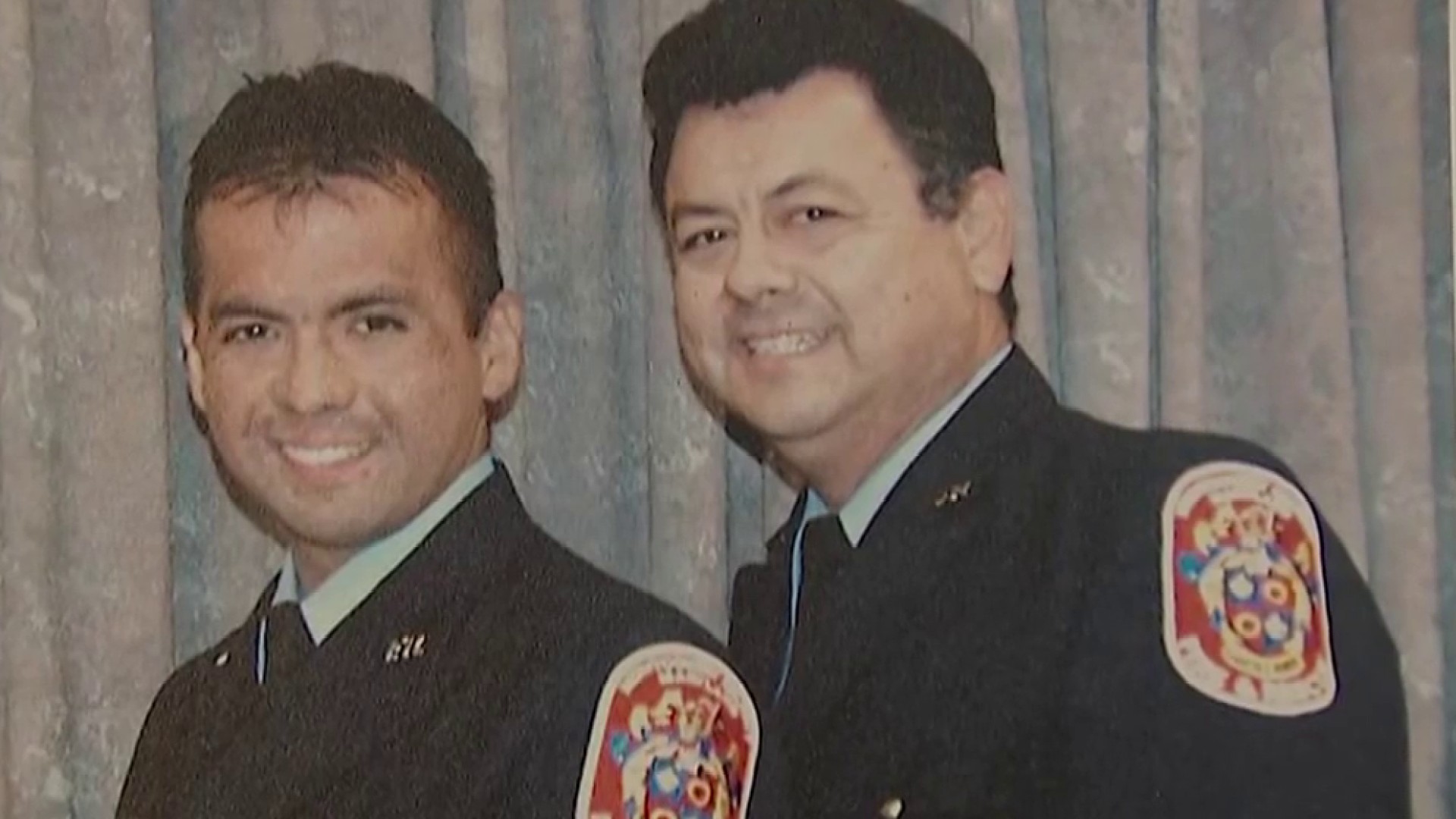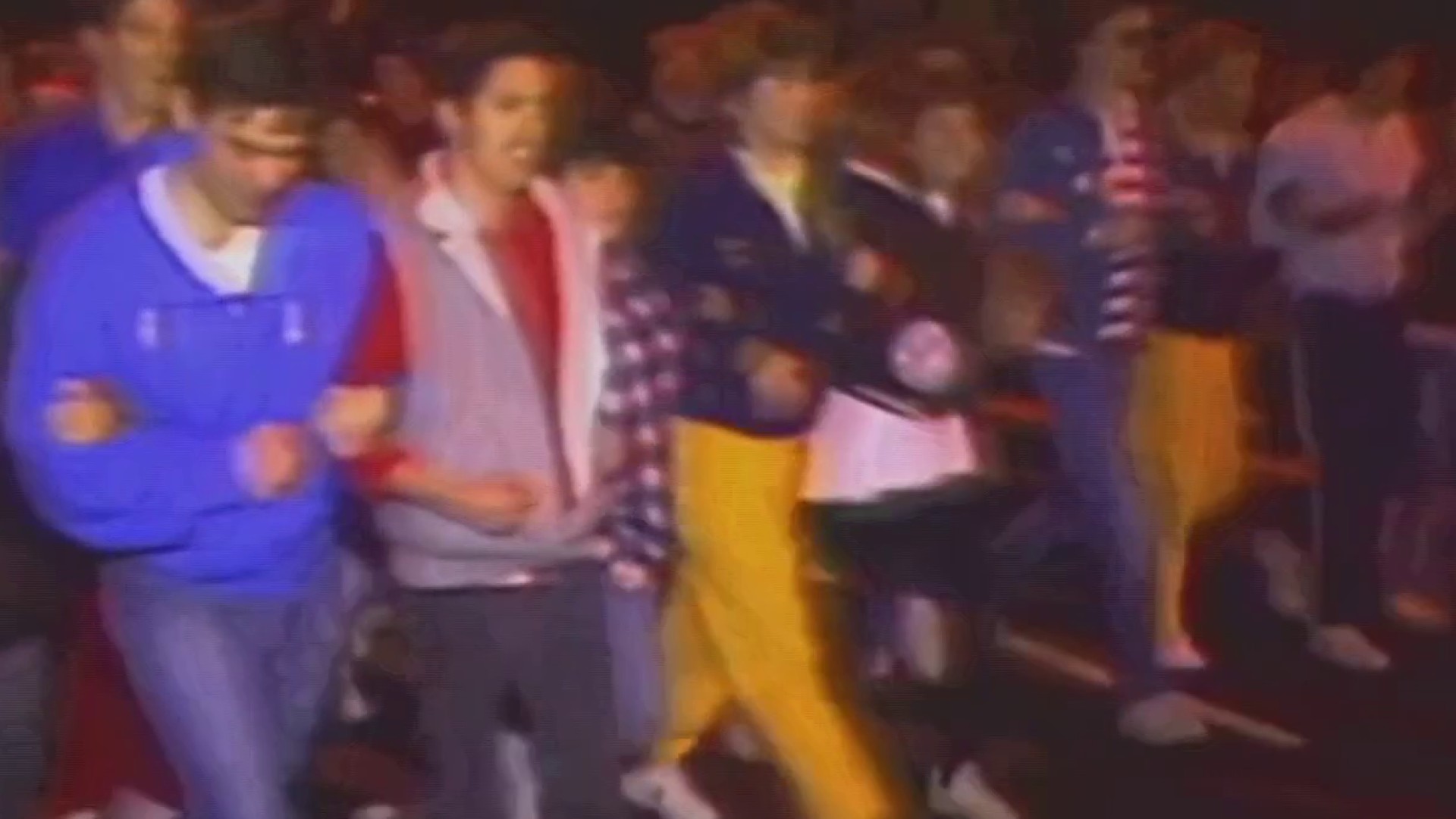Comedian Bill Cosby was released from prison on Wednesday after the Pennsylvania Supreme Court overturned his sex assault conviction. How did Cosby go from convicted to released and how is the country reacting? NBC10’s Aaron Baskerville and Danny Freeman break it all down.
What to Know
- Bill Cosby was released from a Pennsylvania prison on Wednesday after the state supreme court vacated his sexual assault conviction. He had served two years on his 10 year sentence.
- In 2018, the actor and comedian was convicted of drugging and molesting Andrea Constand in his Montgomery County, Pennsylvania, estate.
- Cosby's spokesman said the 83-year-old should have never been charged. The district attorney said Cosby is being released on a technicality unrelated to the facts of the case. The actor's accusers said they were sickened by the court's decision.
Pennsylvania’s highest court overturned Bill Cosby’s sex assault conviction Wednesday after finding an agreement with a previous prosecutor prevented him from being charged in the case.
Cosby served more than two years of a three- to 10-year sentence at a state prison near Philadelphia. He had vowed to serve all 10 years rather than acknowledge any remorse over the 2004 encounter with accuser Andrea Constand.
The 83-year-old Cosby, who was once beloved as “America’s Dad,” was convicted of drugging and molesting the Temple University employee at his suburban estate.
We've got the news you need to know to start your day. Sign up for the First & 4Most morning newsletter — delivered to your inbox daily. Sign up here.
He was charged in late 2015, when a prosecutor armed with newly unsealed evidence — Cosby’s damaging deposition from her lawsuit — arrested him days before the 12-year statute of limitations expired.
The trial judge had allowed just one other accuser to testify at Cosby’s first trial, when the jury deadlocked. However, he then allowed five other accusers to testify at the retrial about their experiences with Cosby in the 1980s.
The Pennsylvania Supreme Court, in a 79 page opinion, said that testimony tainted the trial, even though a lower appeals court had found it appropriate to show a signature pattern of drugging and molesting women.
As part of the ruling, Cosby cannot be tried again on these same charges. New charges could be filed in a case involving another accuser.
Cosby was released from State Correctional Institution Phoenix in Eagleville, Pennsylvania, just after 2 p.m. — a mere two hours after the court's order came down.
Local
Washington, D.C., Maryland and Virginia local news, events and information
Andrew Wyatt, Cosby's spokesperson, thanked the Pennsylvania Supreme Court saying Cosby should have never been charged.
"This is what we have been fighting for and this is justice and justice for Black America. This is justice Mr. Cosby has been fighting for. They saw the light," he said.
Cosby held up a V-sign as he was led along a stone path into his Elkins Park home around 3:30 p.m. Wednesday — the same home where Andrea Constand said she was drugged and assaulted in 2004.
Around 4:30 p.m., Cosby and his legal team addressed the media outside his home.
Cosby wore a t-shirt from Philadelphia's Central High School and raised his hand to a crowd of supporters who loudly cheered him. The comedian is an alum of the school which removed him from their hall of fame following his conviction.
One supporter shouted "Hey, hey hey!" in reference to Cosby's 'Fat Albert' television cartoon.
"Today innocence came to Mr. Cosby," Wyatt told the crowd. "How could a man who was being watched by the FBI every day be drugging and raping?"
Cosby did not speak at the appearance, leaving the comments to his lawyers. But he nodded when one spokeswoman said he was just happy to be home.
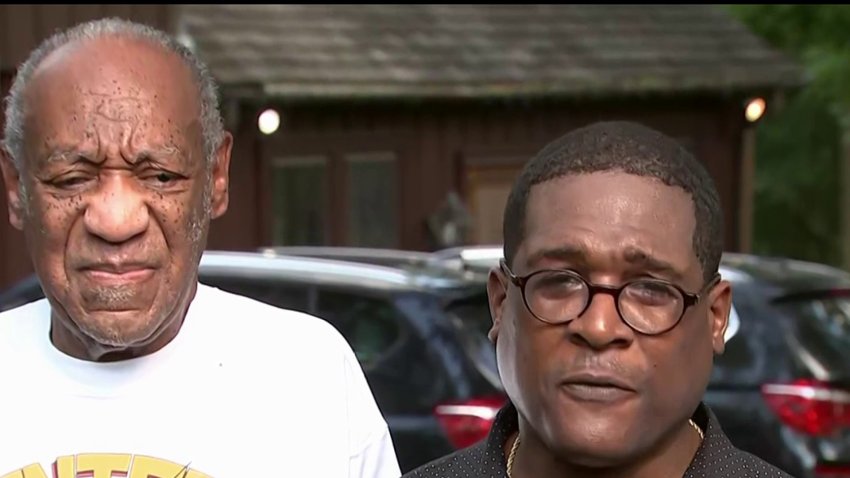
Cosby later called in to WDAS-FM Radio and spoke publicly for the first time since his release.
"This is for all the people who have been imprisoned wrongfully regardless of race, color, or creed," Cosby said. "Because I met them in there. People who talked about what happened and what they did. And I know there are many liars out there. But these people can’t get lawyers and the lawyers they get are with the lawyers that are going against them."
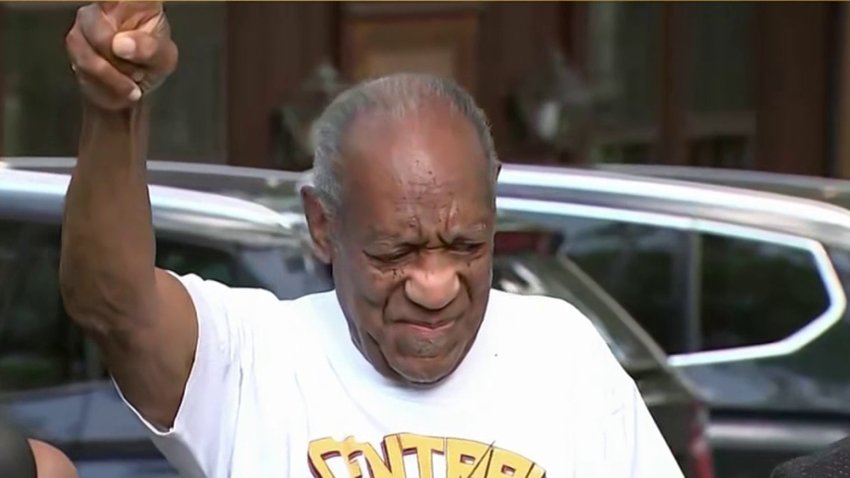
He released another statement on his official Twitter account.
Constand's attorney, Dolores Troiani, said they were reviewing the decision and declined further comment at this time.
In a statement, Montgomery County District Attorney Kevin Steele said Cosby was released on a technicality that had no bearing on the facts of the case.
"He was found guilty by a jury and now goes free on a procedural issue that is irrelevant to the facts of the crime," he said in an emailed statement.
"I want to commend Cosby’s victim Andrea Constand for her bravery in coming forward and remaining steadfast throughout this long ordeal, as well as all of the other women who have shared similar experiences. My hope is that this decision will not dampen the reporting of sexual assaults by victims."

Former Montgomery County District Attorney Bruce Castor declined to prosecute Cosby for sexual assault in 2005. He explained his decision following Cosby's release on Wednesday.
"There were problems proving the case. Some of the information we got was inconsistent and there was a lengthy delay which caused it so I didn't have any opportunity to get any forensic backup," Castor said.
"And there were various other things that were reported in the opinion that were troubling. Continuing contact between the alleged victim and Cosby after the fact. Statements that could've been used to suggest extortion. There was a possibility that the alleged victim had sought legal counsel for a civil settlement before coming to the police. There were a lot of things that led me at the time to think a prosecution would be problematic and unprovable."
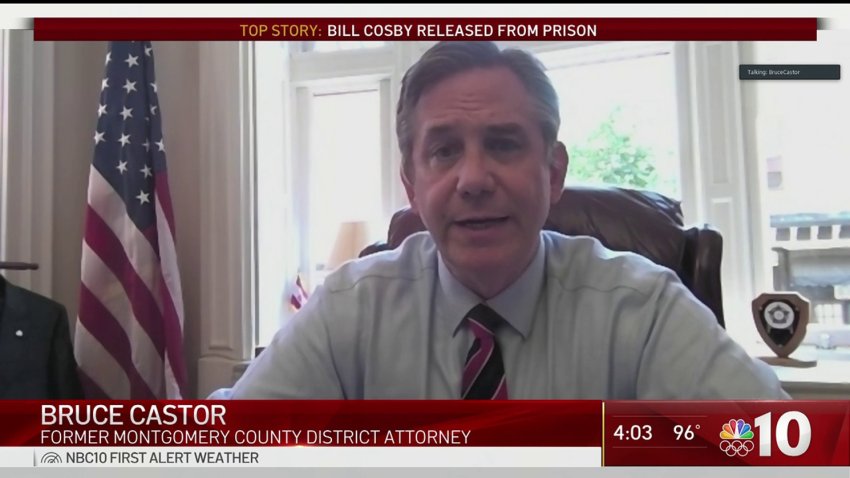
Cosby was the first celebrity tried and convicted in the #MeToo era, so the reversal could make prosecutors wary of calling other accusers in similar cases. The law on prior bad act testimony varies by state, though, and the ruling only holds sway in Pennsylvania.
The justices voiced concern not just about sex assault cases, but what they saw as the judiciary’s increasing tendency to allow testimony that crosses the line into character attacks. The law allows the testimony only in limited cases, including to show a crime pattern so specific it serves to identify the perpetrator.
In New York, the judge presiding over last year’s trial of movie mogul Harvey Weinstein, whose case had sparked the explosion of the #MeToo movement in 2017, let four other accusers testify. Weinstein was convicted and sentenced to 23 years in prison. He is now facing separate charges in California.
In Cosby’s case, one of his appellate lawyers said prosecutors put on vague evidence about the uncharged conduct, including Cosby’s own recollections in his deposition about giving women alcohol or quaaludes before sexual encounters.
“The presumption of innocence just didn’t exist for him,” Jennifer Bonjean, the lawyer, argued to the court in December.
In May, Cosby was denied paroled after refusing to participate in sex offender programs during his nearly three years in state prison. He has long said he would resist the treatment programs and refuse to acknowledge wrongdoing even if it means serving the full 10-year sentence.
This is the first year he was eligible for parole under the three- to 10-year sentence handed down after his 2018 conviction.
Wyatt previously called the parole board decision “appalling.”
Prosecutors said Cosby repeatedly used his fame and “family man” persona to manipulate young women, holding himself out as a mentor before betraying them.
Bill Cosby v. Andrea Constand
Cosby, a groundbreaking Black actor who grew up in public housing in Philadelphia, made a fortune estimated at $400 million during his 50 years in the entertainment industry. His trademark clean comedy and homespun wisdom fueled popular TV shows, books and standup acts.
He fell from favor in his later years as he lectured the Black community about family values, but was attempting a comeback when he was arrested.
“There was a built-in level of trust because of his status in the entertainment industry and because he held himself out as a public moralist,” Assistant District Attorney Adrienne Jappe, of suburban Montgomery County, argued to the justices.
Cosby had invited Constand to an estate he owns in Cheltenham, Pennsylvania, just outside Philadelphia, the night she said he drugged and sexually assaulted her.
Constand, a former professional basketball player who worked at his alma mater, went to police a year later. The other accusers knew Cosby through the entertainment industry and did not go to police.
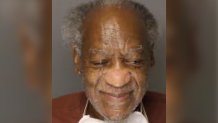
Shock from Cosby's Accusers
Wednesday's state supreme court decision stunned a collection of women who accused Cosby of sexual assault.
In a released statement, Constand called the decision to overturn Cosby’s conviction “disappointing” and expressed concern that it “may discourage those who seek justice for sexual assault in the criminal justice system from reporting or participating in the prosecution of the assailant or may force a victim to choose between filing either a criminal or civil action.”
Janice Baker-Kinney, who testified at the trial and said Cosby drugged and assaulted her at a Harrah's Casino in Reno, Nevada, told NBC News' Kate Snow that she's "stunned."
"No words. Just sick to my stomach," Baker-Kinney said. She later tweeted #RAPIST #RAPIST #RAPIST while sharing a link to a news story.
Eden Tirl was 22 when she said Cosby sexually harassed her on the set of "The Cosby Show" in 1989. On Wednesday, she said "I am completely out of breath."
"From the very beginning, the rigid constructs of the statute of limitations, did not provide protection or a pathway for justice for the women that came out against Cosby," she wrote. "The outdated laws are so clearly in place--protecting men in these cases, more often than not."
Support for Cosby
Cosby's former "The Cosby Show" co-star, Phylicia Rashad, was the first to comment Wednesday tweeting emphatically about the decision.
"FINALLY!!!! A terrible wrong is being righted- a miscarriage of justice is corrected," she said.
Rashad, who is scheduled to start a new job as the Dean of the College of Fine Arts at Howard University on Thursday, had previously spoken out in support of Cosby after he was accused of sexual assault.

